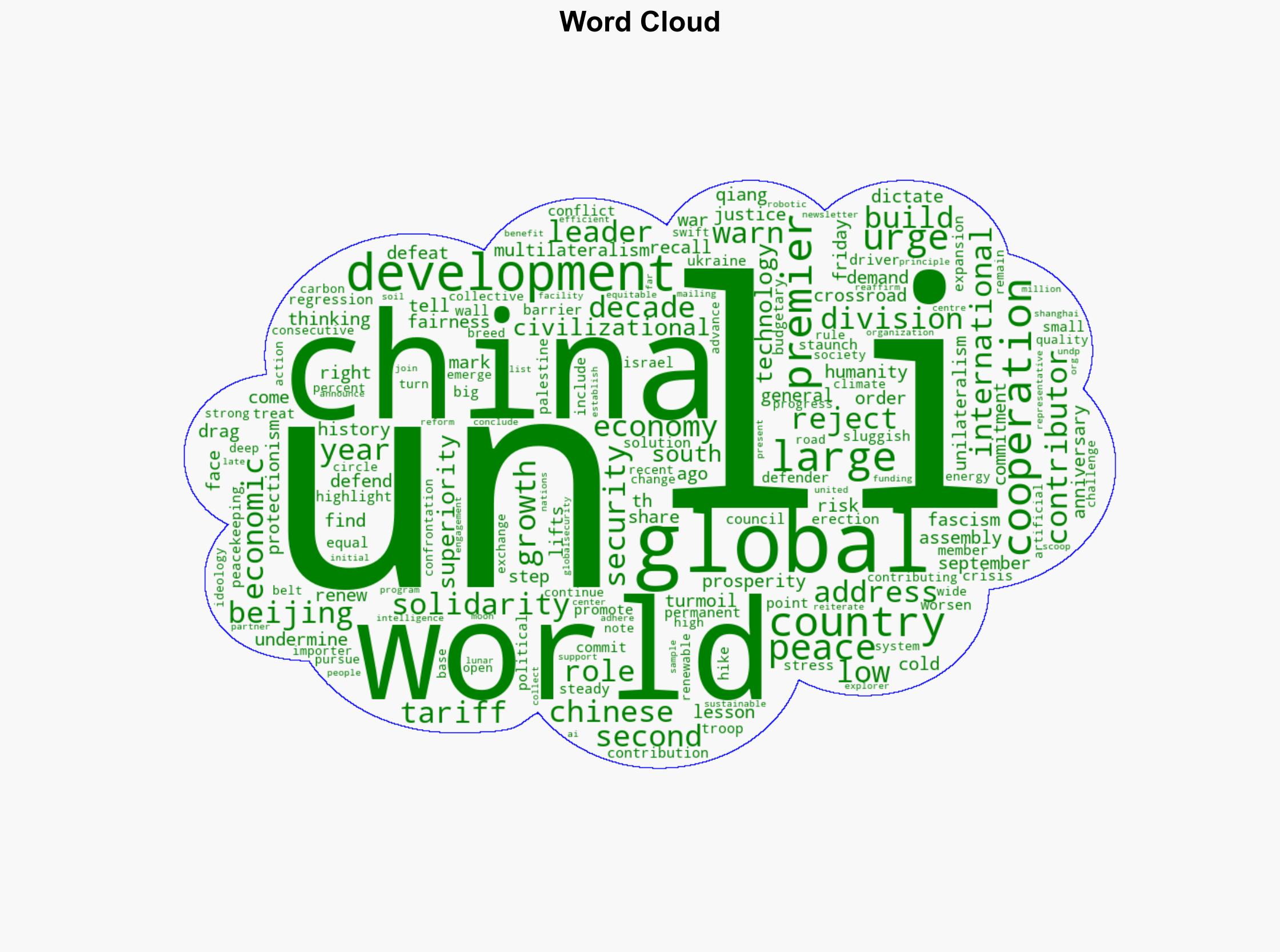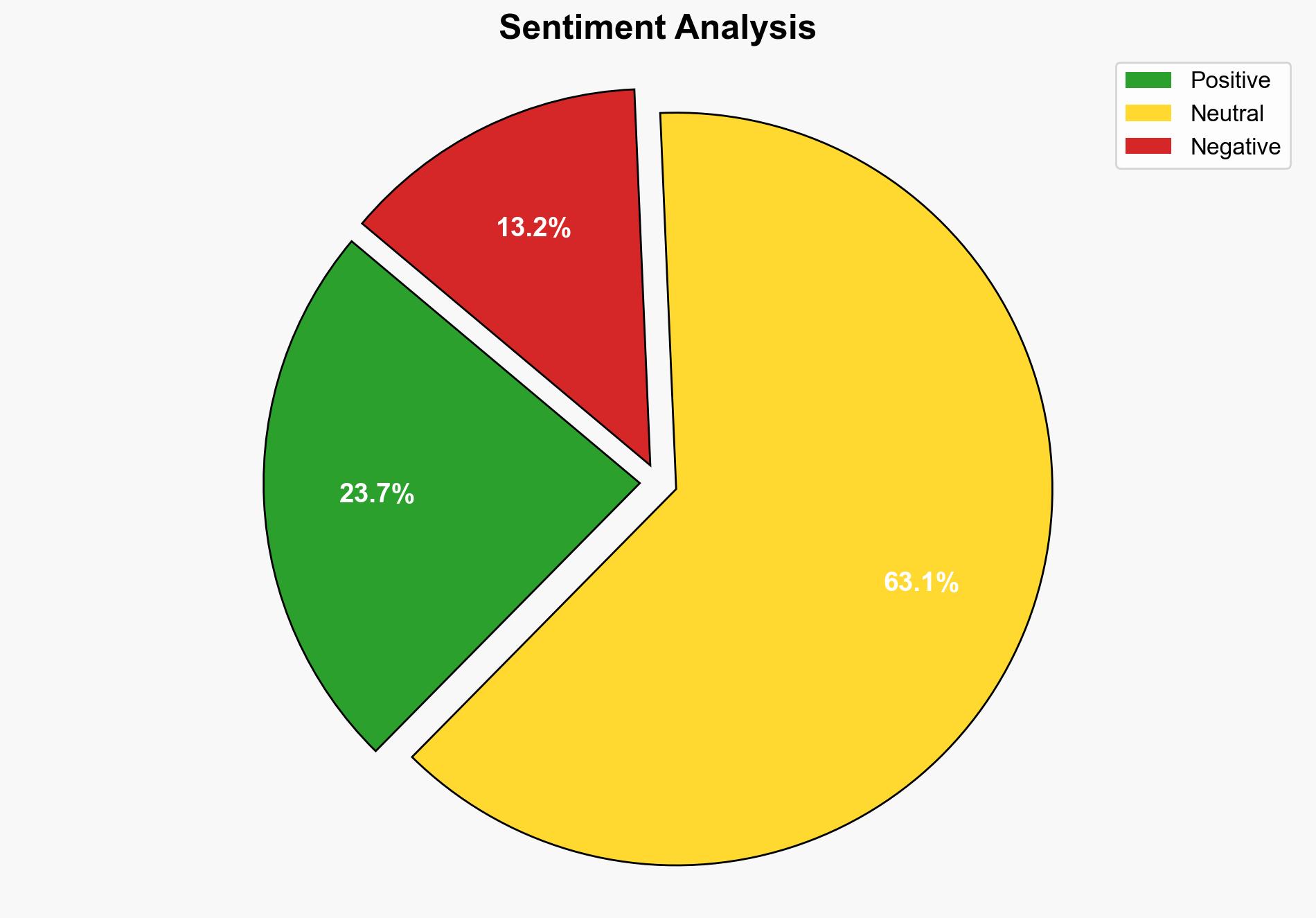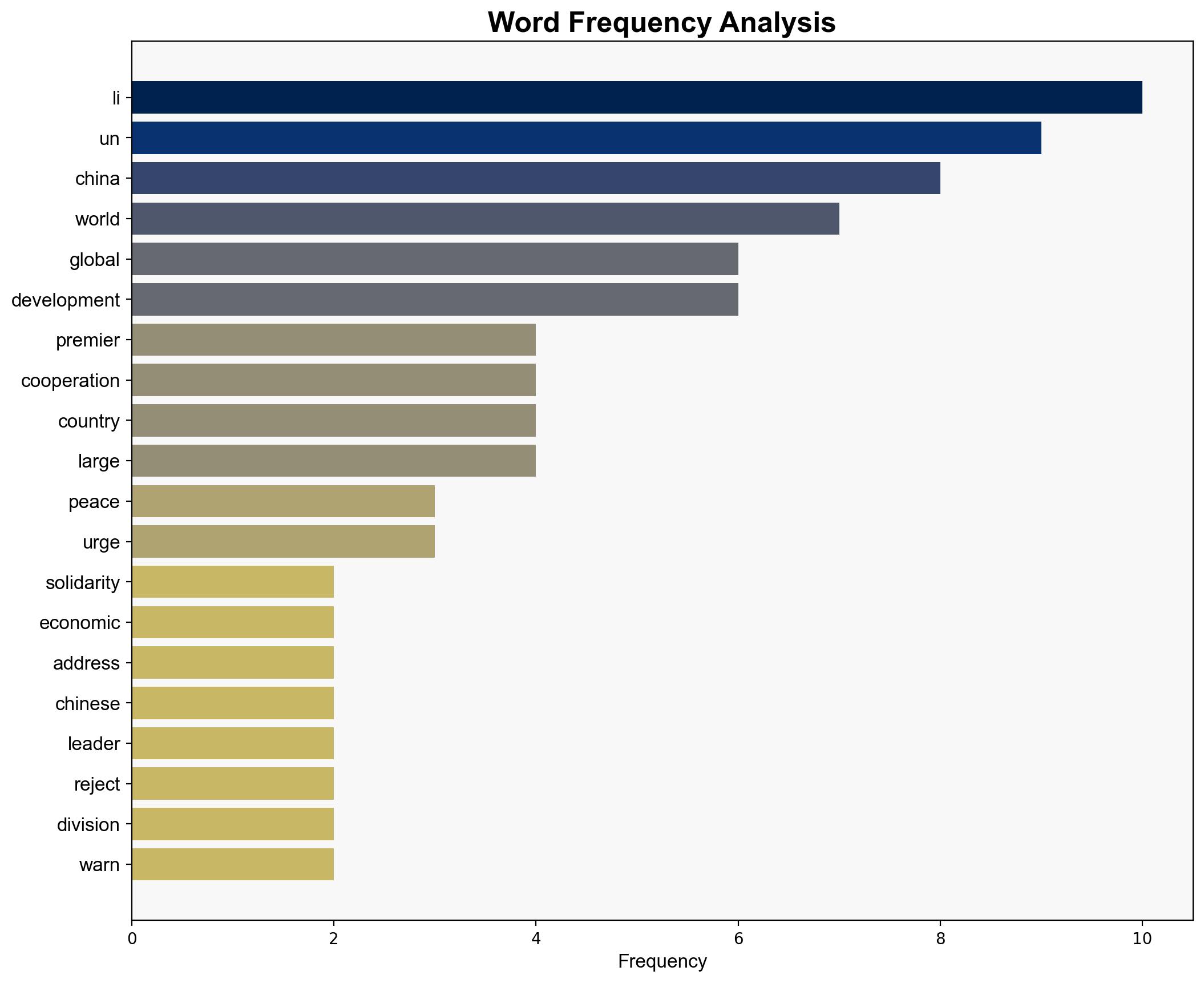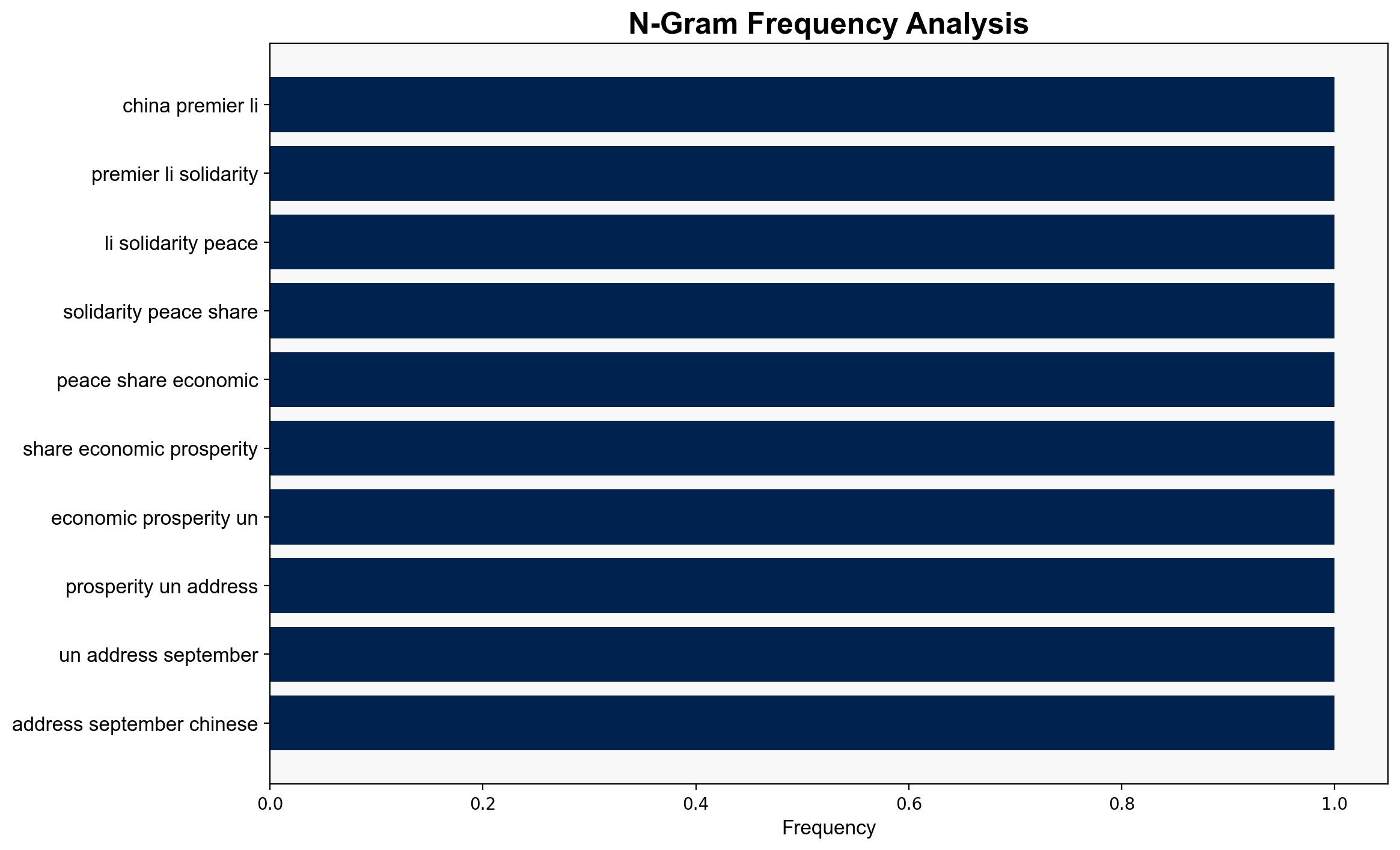China’s Premier Li calls for solidarity peace and shared economic prosperity in UN address – Globalsecurity.org
Published on: 2025-09-29
Intelligence Report: China’s Premier Li calls for solidarity peace and shared economic prosperity in UN address – Globalsecurity.org
1. BLUF (Bottom Line Up Front)
China’s Premier Li Qiang’s address at the UN emphasizes multilateralism and economic cooperation, potentially signaling a strategic pivot towards enhancing China’s global influence through soft power. The most supported hypothesis is that China is positioning itself as a leader in global governance and economic development, with a moderate confidence level. Recommended action includes monitoring China’s diplomatic engagements and economic initiatives for shifts in global power dynamics.
2. Competing Hypotheses
1. **China’s Strategic Leadership Hypothesis**: China is positioning itself as a global leader in multilateralism and economic development, using platforms like the UN to promote its Belt and Road Initiative and other economic policies to gain influence.
2. **Defensive Posture Hypothesis**: China’s emphasis on multilateralism and economic cooperation is primarily a defensive strategy to counterbalance perceived threats from Western protectionism and unilateralism, aiming to safeguard its economic interests and global standing.
Using ACH 2.0, the first hypothesis is better supported by China’s recent actions, such as its significant contributions to UN peacekeeping and economic initiatives like the Belt and Road. The second hypothesis is less supported as it lacks direct evidence of defensive maneuvers in the current diplomatic context.
3. Key Assumptions and Red Flags
– **Assumptions**: It is assumed that China’s economic policies are primarily driven by a desire for global leadership rather than internal economic pressures. Another assumption is that China’s contributions to international organizations are purely altruistic.
– **Red Flags**: Potential cognitive bias includes overestimating China’s willingness to lead without considering internal economic challenges. Deception indicators could be present if China’s public statements do not align with its actions, such as continued trade barriers.
4. Implications and Strategic Risks
China’s push for multilateralism could reshape global economic and political alliances, potentially marginalizing Western influence. This may lead to increased geopolitical tensions, particularly if China’s initiatives are perceived as undermining existing international norms. Economic risks include potential trade imbalances and dependency on Chinese infrastructure projects.
5. Recommendations and Outlook
- Monitor China’s diplomatic engagements and economic initiatives for shifts in global power dynamics.
- Engage in multilateral forums to ensure balanced representation and prevent dominance by any single nation.
- Scenario Projections:
- Best Case: China collaborates effectively with global partners, enhancing economic growth and stability.
- Worst Case: China’s initiatives lead to geopolitical fragmentation and increased tensions.
- Most Likely: China continues to expand its influence through strategic partnerships and economic investments.
6. Key Individuals and Entities
– Li Qiang
– United Nations
– Belt and Road Initiative
7. Thematic Tags
national security threats, economic diplomacy, global governance, multilateralism





